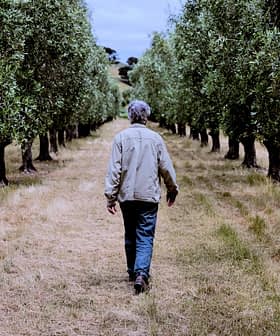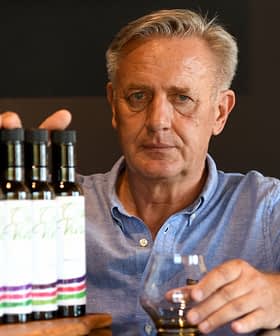No one could ever accuse a Texan of thinking small, so perhaps it’s no surprise to find that the website of the Texas Olive Growers Association and Council (TOGAC) notes the following mission statement: “We are committed to providing education and knowledge, ultimately making Texas the nation’s leader in the growth of olive farming and olive oil production.”
The Longhorn state has a long way to go to overcome California as America’s top dog in the olive and olive oil trade, but TOGAC president John Gambini was firmly optimistic. “There are a lot of great things going on in the industry here,” he said when reached by phone following the organization’s quarterly meeting on July 25. “New farmers are coming on board fast and those in the business are starting to expand their orchards. We expect the industry over the next two years will almost double as far as trees planted, with a lot more fruit production.”
See Also:Texas Olive Oil Producers Beating the Odds
Gambini is walking the walk as head of his family-owned Texas Hill Country Olive Company and his goals for his award-winning product and the entirety of the state’s new cash crop are ambitious. “The TOGAC was established to provide information to Texas farmers so they can learn how to build the industry,” he said. This includes examining which cultivars are likely to fare best in the Texas climate, what pitfalls to be aware of (cotton root rot and how to address it was primary at the meeting), and how to handle additional problems that arise.
Sue Langstaff of Applied Sensory, LLC, is head of one of the few sensory panels recognized by the American Oil Chemists Society (AOCS). Her company tests and tastes olive oils to determine, among other chemical specificity, whether they can be labeled as “extra virgin,” and she was among the speakers at the meeting. In her presentation, she offered an introduction to the processing and evaluation of olive oils, on how to spot defects, and on how to understand the grading system. “They were thirsty for knowledge,” she said of the eager and committed growers and producers.
Langstaff commended the group for its goals. “Some members brought their (product) to the meeting, so we tasted and found a pretty good representation of Texas olive oils. They were mostly defect-free so that’s a good thing from the get-go.”
A more pressing a concern for the fledgling Texas industry today, according to Langstaff, is its current labeling practices. “The reality is, they don’t yet have enough oil being produced, so they’re blending their (Texas-made) product with olive oils from California, for example, and some people are (upset) because they feel it’s being passed off as strictly from Texas.”
Langstaff asserts that her concern isn’t about the blends themselves. “Sometimes blends are better,” she said. “There can be that synergy of one plus one equals three. And in Texas, they’re on their way to producing 100 percent Texas-milled product but they aren’t there yet. It’s a growing industry.”
“But you know, you want to make sure for now that if they’re selling their product as 100 percent Texan, then that’s what it should be.”
Gambini flips that script. He is more concerned with quality, he said, in keeping American oils American-made, and with the blends that include international product.
“The taste tests we did found the imported supermarket brands to be almost all rancid. It’s ridiculous what they sell as extra virgin. And the prices at which they are selling their oils are outrageously low. They’re low-balling to keep out American producers. There should be labeling that states that the oil is American made, whether it be from Texas, California, Georgia, or wherever.”








